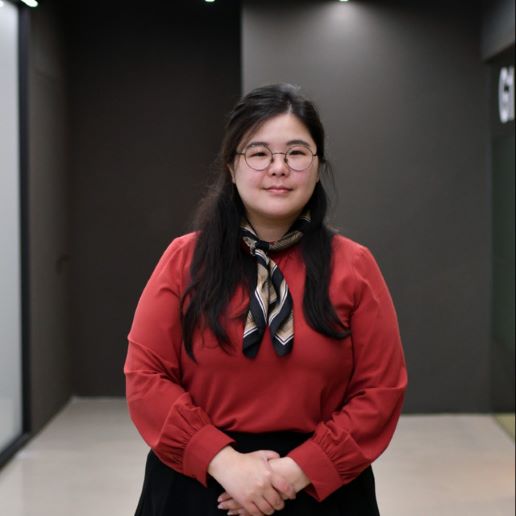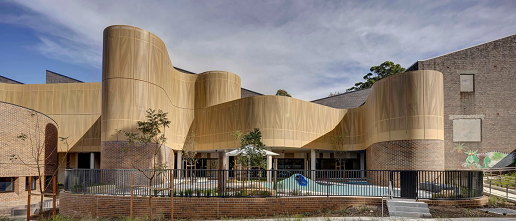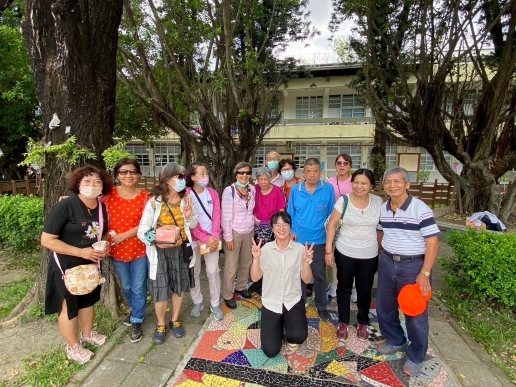The new immigrant count in Taoyuan City is getting close to 60,000, placing it fourth in Taiwan. The Taoyuan New Immigrants Culture Hall, which is also the first in Taiwan to integrate naturalization, cultivation, health care, and law, among other units, was established to make it easier for new immigrants to obtain assistance quickly.
Zhang Yu-ting (張瑜庭), who was formerly deputy executive director of the Taoyuan New Immigrants Culture Hall and worked for the hall for almost three years, was invited to share with readers through the [Interview] of [Taiwan Immigrants’ Global News Network] about the demand for work and naturalization on the part of new immigrants, as well as the anticipation that immigration and information equality-related difficulties would likely increase in the future.
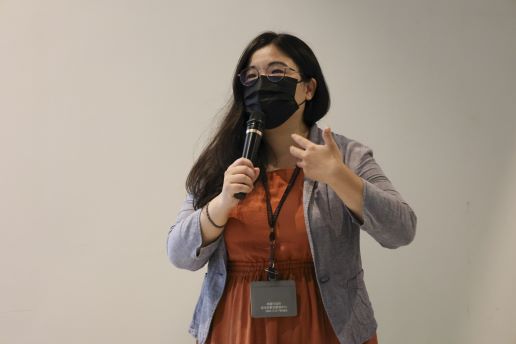
Zhang Yu-ting (張瑜庭) during a speech.Photo provided by Zhang Yu-ting (張瑜庭)
After graduating from National Taiwan Normal University and the graduate school of Culture, Languages, and Literature, Zhang Yu-ting spent many years working as a congressional assistant in the Legislative Yuan and actively engaged in political and societal concerns. She thus joined the volunteer work for Taoyuan City's new immigrants.
According to Zhang, the service center was firstly located in the Center for Women of Taoyuan City, a little way from the station. Despite being a modest area, it nonetheless served the service center's intended purpose. A one-stop service prototype had already been developed at that point, with personnel stationed in the civil affairs, social, labor, education, and other agencies.
More than a year later, the Taoyuan New Immigrants Culture Hall was formally inaugurated in order to make it simpler for new immigrants to access services. The facility has not only expanded but has also been separated into three different service centers: one for migrant workers, one for new immigrants' families, and one for new immigrants' communities. In order to aid new immigrants who, come here for assistance with their concerns, the mental health clinic also offers interpreters who can assist with translation.
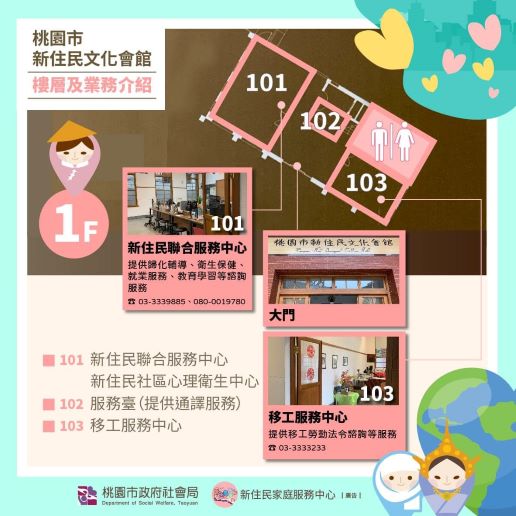
The floor map of Taoyuan New Immigrants Culture Hall.Photo provided by Taoyuan New Immigrants Culture Hall
Read more: Disruption and Rebirth of the Post-pandemic: the Aging Future of New Immigrants
Zhang became aware of the challenges of new immigrants after working in the Taoyuan New Immigrants Culture Hall. Additionally, she understood that "integrating and providing services at the same time" was the best course of action. As a result, for more than three years, Zhang has consistently offered a variety of unique projects and plans and gradually distributed various service acceptance units on each level of the s Culture Hall. They offer one-stop service here for any queries and requests for assistance from new immigrants. Directly ask the appropriate acceptance unit to handle it so that new immigrants of Taoyuan City won't need to visit several departments to submit a particular application.
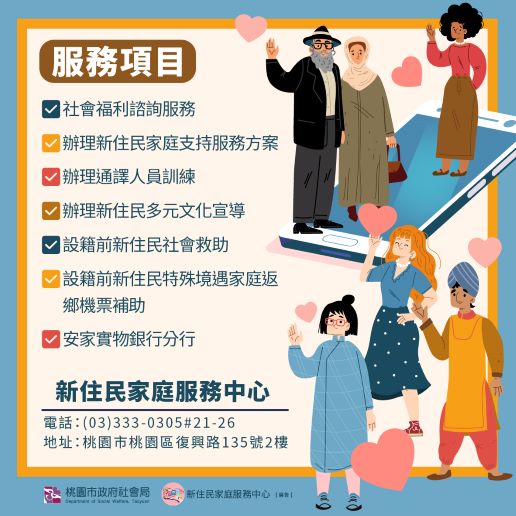
Services of Taoyuan New Immigrants Culture Hall.Photo provided by Taoyuan New Immigrants Culture Hall
Read more: Phan Si Leng is wearing a traditional Cambodian clothing to promote Cambodian culture eagerly
Since Taoyuan is a significant Hakka village in Taiwan and many new immigrants wish to study Hakka, the Taoyuan New Immigrants Culture Hall also provides a variety of life courses. The Culture Hall also frequently provides a variety of occupation-related skill training courses, such as fundamental hydroelectric skills, beauty, catering, micro-e-commerce, computer, and other skills, so new immigrants can learn skills through these courses and even obtain a certificate to support the development of future employment.
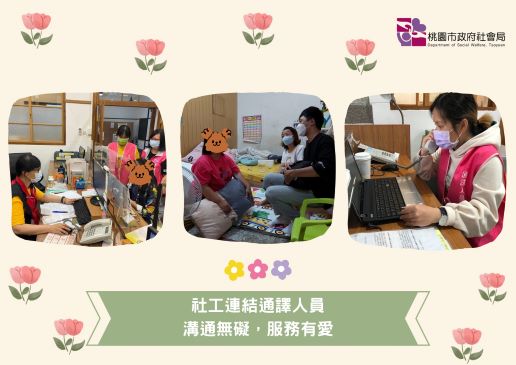
Taoyuan New Immigrants Culture Hall has many social workers who provide different services.Photo provided by Taoyuan New Immigrants Culture Hall
Read more: Outstanding New Migrant, Tran Ngoc Thuy Unlocks All Kinds of Achievements in Life with Passion
A very significant issue was also brought up by Zhang Yu-ting (張瑜庭), namely the unequal distribution of essential information by various administrations. For instance, the information made available by the epidemic command center only spoke Chinese throughout the period of the severe outbreak. These crucial signals cannot be understood by new immigrant communities. In order to encourage the integration of new immigrants’ service centers in other areas, the Taoyuan New Immigrants Culture Hall took the initiative to produce translation charts, providing translations in five different languages, including Thai, Vietnamese, and Indonesian.
Zhang Yu-ting further noted that [Taiwan Immigrants’ Global News Network]
offers news in five other languages in addition to Chinese, English, Vietnamese, Thai, and Indonesian so that new immigrants may watch the news in their own tongue. Through [Taiwan Immigrants’ Global News Network], one may also learn about many vital messages and policies.
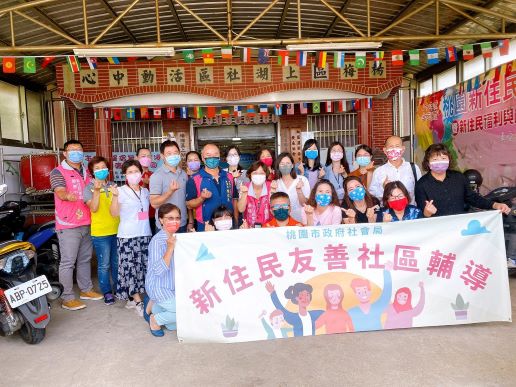
Taoyuan New Immigrants Culture Hall went deep into the community to provide counseling.Photo provided by Taoyuan New Immigrants Culture Hall
Zhang Yu-ting (張瑜庭) is still actively advocating for the rights and interests of new immigrants and taking part in political matters even though she has left the Taoyuan New Immigrants Culture Hall. She has written for the new immigrants in the main media. The "Immigration Act" amendments, she hopes, will be made as quickly as feasible. The protection of new immigrants' rights will be improved with the acceptance of the draft. Additionally, it is intended that more bilingual policies would be produced so that new immigrants in Taiwan may equally access information and comprehend their rights and interests while obtaining crucial information.

